Galleria degli Uffizi, Florence (original) (raw)
Galleria degli Uffizi, Florence
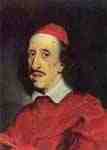
Portrait of Cardinal Leopoldo, Bacchiacca
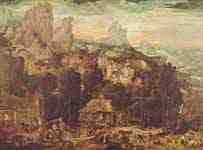
The copper mine, Hendrick met de Bles
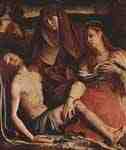 Pièta or Lamentation, Bronzino
Pièta or Lamentation, Bronzino
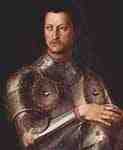 Portrait of Cosimo I de Medici in armor, Bronzino
Portrait of Cosimo I de Medici in armor, Bronzino
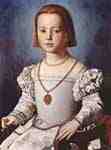 Portrait of Bia de Medici, Bronzino
Portrait of Bia de Medici, Bronzino
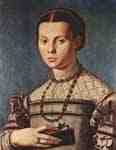 Portrait of a girl with book, Bronzino
Portrait of a girl with book, Bronzino
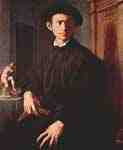 Portrait of a young man with lute, Bronzino
Portrait of a young man with lute, Bronzino
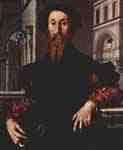 Portrait of Bartolomeo Panciatichi, Bronzino
Portrait of Bartolomeo Panciatichi, Bronzino
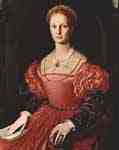 Portrait of Lucrezia Panciatichi, Bronzino
Portrait of Lucrezia Panciatichi, Bronzino
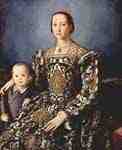 Portrait of Eleonora da Toledo and her son, Bronzino
Portrait of Eleonora da Toledo and her son, Bronzino
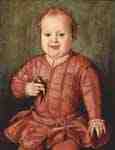 Portrait of Giovanni de Medici, Bronzino
Portrait of Giovanni de Medici, Bronzino
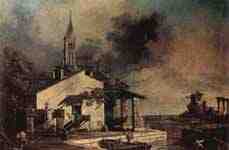
Lagoon, Canaletto (I)

Portrait of Condottiere Pippo Spano, Andrea del Castagno
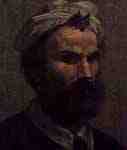
Self-portrait, Domenico Beccafumi
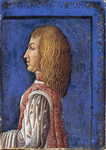
Frederick III, Benedetto Bonfigli
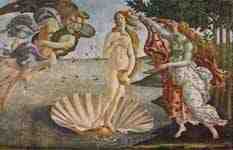
Birth of Venus , Sandro Botticelli
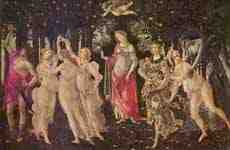
Spring (Primavera ), Sandro Botticelli
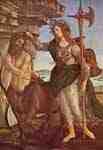 Minerva and the Centaur, Sandro Botticelli
Minerva and the Centaur, Sandro Botticelli
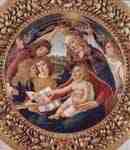
Madonna of the Magnificat, Sandro Botticelli
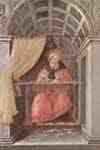
St. Augustine in retreat, Sandro Botticelli
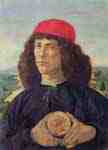
Portrait of a Man with the Medal of Cosimo the Elder ., Sandro Botticelli
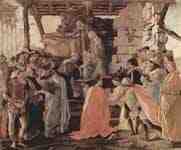
Zanobi Altar, Sandro Botticelli
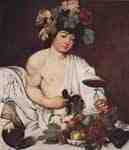
Bacchus, Michelangelo Caravaggio
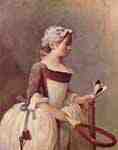
The Girl with the shuttlecock, Jean-Baptiste Siméon Chardin

Enthroned Madonna, Cimabue
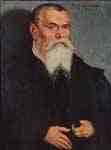
Self portrait at 77 years, Lucas Cranach the Elder

Eve, Lucas Cranach the Elder

Flea seeker, Giuseppe Maria Crespi
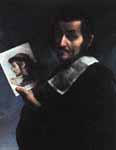
Self-Portrait, Carlo Dolci
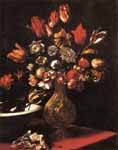
Vase of Flowers, Carlo Dolci
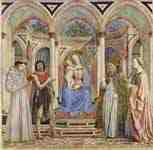 Madonna and Child with Saints, Domenico Veneziano
Madonna and Child with Saints, Domenico Veneziano

Madonna Rucellai, Duccio
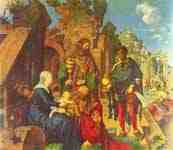
Adoration of the Magi, Albrecht Dürer
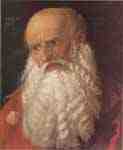
Apostle James, Albrecht Dürer
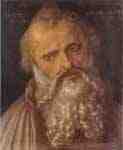
Apostle Philip, Albrecht Dürer
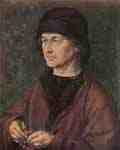
Portrait of Albrecht Durer the Elder, Albrecht Dürer
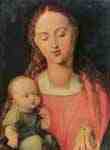
Mary with Child, Albrecht Dürer

Portrait of Margaret of Lorraine, Anthony van Dyck
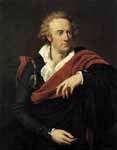
Portrait of Vittorio Alfieri, François-Xavier Fabre
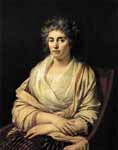
Portrait of the Countess d'Albany, François-Xavier Fabre
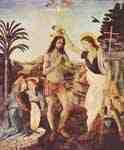
The Baptism of Christ, Leonardo da Vinci and Andrea del Verrocchio

Annunciation to Mary, Leonardo da Vinci
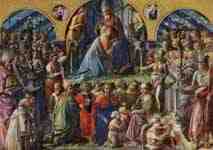
Coronation of the Virgin, Fra Filippo Lippi

Madonna With Two Angels, Fra Filippo Lippi
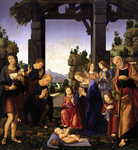
Adoration of the Shepherds, Lorenzo di Credi
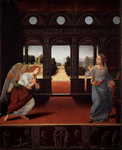
Annunciation, Lorenzo di Credi
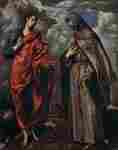
Sts John and Francis, El Greco

Venus, Lorenzo di Credi
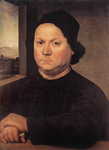
Portrait of a Man, Lorenzo di Credi
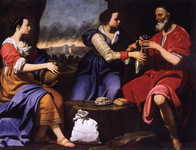
Lot and his Daughters, Lorenzo Lippi
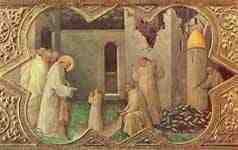
Scene from the Life of St Benedict, Lorenzo Monaco
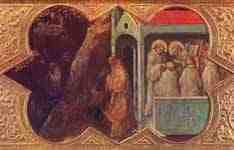
Scene from the Life of St Benedict, Lorenzo Monaco
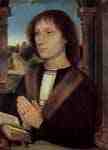
Portrait of a man (Giovanni ), Hans Memling
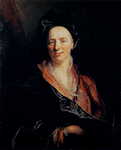
Portrait of Jean-Baptiste Rousseau, Nicolas de Largillière
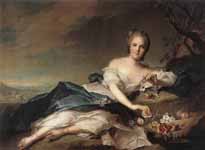
Henriette of France as Flora, Jean-Marc Nattier
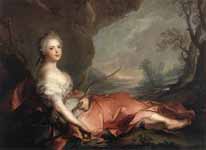
Marie Adelaide of France as Diana, Jean-Marc Nattier
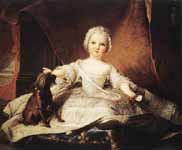
Portrait of Madame Maria Zeffirina, Jean-Marc Nattier
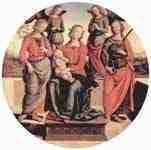
Enthroned Madonna with Saints, Pietro Perugino
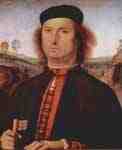
Portrait of Francesco delle Opere, Pietro Perugino
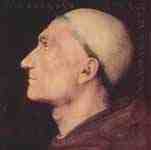
Don Baldassarre di Antonio di Angelo, Pietro Perugino
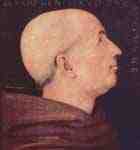
Don Biagio Milanesi, Pietro Perugino
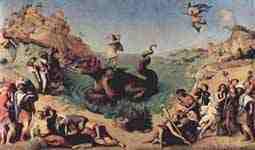
Perseus frees Andromeda, Piero di Cosimo
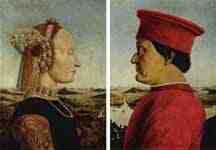
Federigo di Montefeltro and Battista Sforza, Piero della Francesca
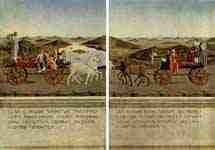
Triumph of the Duke and Duchess, Piero della Francesca
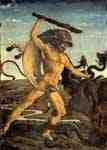
Heracles and the Hydra, Antonio Pollaiuolo

Portrait of a Lady, Antonio Pollaiuolo
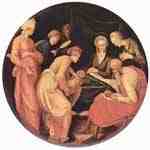
Birth of John the Baptist , Tondo, Jacopo Pontormo
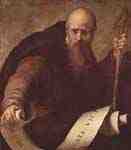
St. Anthony Abbas, Jacopo Pontormo
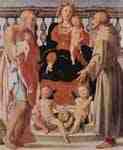
Madonna with St Francis and St Jerome, Jacopo Pontormo
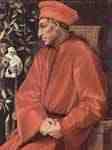
Portrait of Cosimo Il Vecchio de ' Medici, Jacopo Pontormo
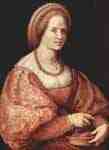
Portrait of a Lady with Spindle Cup, Jacopo Pontormo
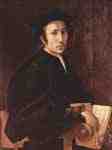
Portrait of a musician, Jacopo Pontormo
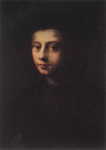
Portrait of Pietro Carnesecchi, Domenico Puligo
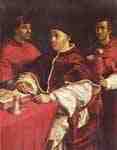
Pope Leo X with two cardinals, Raphael
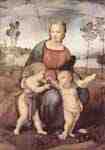
Madonna of the Goldfinch, Raphael
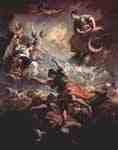
Allegory of Tuscany, Sebastiano Ricci
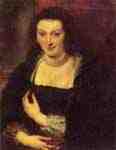
Portrait of Isabella Brandt, Peter Paul Rubens
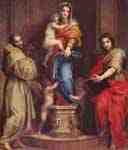
Harpies madonna, Andrea del Sarto
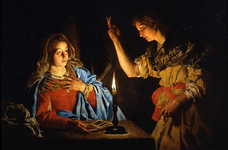
The Annunciation, Matthias Stom
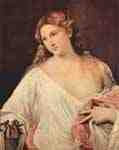
Flora, Titian
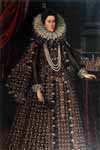
Portrait of Maria Maddalena of Austria, Tiberio di Tito

St. Dominic, Cosmè Tura
The Uffizi Gallery (Italian: Galleria degli Uffizi, pronounced [ɡalleˈriːa deʎʎ(i) ufˈfittsi]) is an art museum in Italy. It is located in Florence, and is one of the oldest and most famous art museums in the world.
History
The building of Uffizi was begun by Giorgio Vasari in 1560 for Cosimo I de' Medici so as to accommodate the offices of the Florentine magistrates, hence the name uffizi, "offices". The construction was later continued by Alfonso Parigi and Bernardo Buontalenti and completed in 1581. The cortile (internal courtyard) is so long and narrow, and open to the Arno at its far end through a Doric screen that articulates the space without blocking it, that architectural historians[2] treat it as the first regularized streetscape of Europe. Vasari, a painter and architect as well, emphasised its perspective length by the matching facades' continuous roof cornices, and unbroken cornices between storeys and the three continuous steps on which the palace-fronts stand. The niches in the piers that alternate with columns filled with sculptures of famous artists in the XIX century.
The Uffizi brought together under one roof the administrative offices, the Tribunal and the Archivio di Stato, the state archive. The project that was planned by Cosimo I de' Medici, Grand Duke of Tuscany to arrange prime works of art in the Medici collections on the piano nobile was effected by Francis I of Tuscany, who commissioned Buontalenti the famous Tribuna degli Uffizi that united a selection of the outstanding masterpieces in the collection in an ensemble that was a star attraction of the Grand Tour.
Over the years, further parts of the palace evolved into a display place for many of the paintings and sculpture collected by the House of Medici or commissioned by them. According to Vasari, who was not only the architect of the Uffizi but also the author of Lives of the Artists, published in 1550 and 1568, artists such as Leonardo da Vinci and Michelangelo gathered at the Uffizi "for beauty, for work and for recreation."[3]
After the house of Medici was extinguished, the art treasures remained in Florence by terms of the famous Patto di famiglia negotiated by Anna Maria Luisa, the last Medici heiress; it formed one of the first modern museums. The gallery had been open to visitors by request since the sixteenth century, and in 1765 it was officially opened to the public.
Because of its huge collection, some of its works have in the past been transferred to other museums in Florence—for example, some famous statues to the Bargello. A project is currently underway to expand the museum's exhibition space in 2006 from some 6,000 metres² (64,000 ft²) to almost 13,000 metres² (139,000 ft²), allowing public viewing of many artworks that have usually been in storage.
In 1993, a car bomb exploded in Via dei Georgofili and damaged parts of the palace, killing five people. The most severe damage was to the Niobe room and classical sculptures and neoclassical interior of which have been restored, although its frescoes were damaged beyond repair. The identity of the bomber or bombers are unknown, although it was almost certainly attributable to the Sicilian Mafia who were engaged in a period of terrorism at that time.
Today, the Uffizi is one of the most popular tourist attractions of Florence. In high season (particularly in July), waiting times can be up to five hours.
In early August 2007, Florence was caught with a large rainstorm, and the Gallery was partially flooded, with water leaking through the ceiling, and the visitors had to be evacuated. There was a much more significant flood in 1966 which damaged most of the art collections in Florence severely, including the Uffizi.
Here is a selection from the painting collection:
Cimabue: Santa Trinita Maestà
Duccio: Rucellai Madonna
Giotto: Ognissanti Madonna, Badia Polyptych
Simone Martini: Annunciation with St. Margaret and St. Ansanus
Ambrogio Lorenzetti: Presentation at the Temple
Gentile da Fabriano, Adoration of the Magi
Paolo Uccello: The Battle of San Romano
Rogier van der Weyden, Lamentation of Christ
Fra Filippo Lippi: Madonna and Child, Coronation of the Virgin
Piero della Francesca: Diptych of Duke Federico da Montefeltro and Duchess Battista Sforza of Urbino
Andrea del Verrocchio: The Baptism of Christ
Hugo van der Goes: Portinari Triptych
Sandro Botticelli: Primavera, The Birth of Venus, Adoration of the Magi of 1475 and others
Leonardo da Vinci: The Annunciation, Adoration of the Magi
Piero di Cosimo: Perseus Freeing Andromeda
Albrecht Dürer: Adoration of the Magi
Michelangelo: Doni Tondo
Raphael: Madonna of the Goldfinch, Portrait of Leo X
Titian: Flora, Venus of Urbino
Parmigianino: Madonna with the Long Neck
Caravaggio: Bacchus, Sacrifice of Isaac, Medusa
Artemisia Gentileschi: Judith and Holofernes
Rembrandt: Self-portrait as a Young Man, Self-portrait as an Old Man, Portrait of an Old Man
The collection also contains some ancient sculptures, such as the Arrotino and the Two Wrestlers.
See also
Collections of the Uffizi
Notes
Top 100 Art Museum Attendance, The Art Newspaper, 2014, p. 15. Retrieved on 25 July 2014.
Sigfried Giedion, Space, Time and Architecture (1941) 1962 fig.17.
Fossi, Gloria. The Uffizi. (Giuniti, 1999), p. 8.
----
Fine Art Prints | Greeting Cards | Phone Cases | Lifestyle | Face Masks | Men's , Women' Apparel | Home Decor | jigsaw puzzles | Notebooks | Tapestries | ...
----
Artist
A - B - C - D - E - F - G - H - I - J - K - L - M - N - O - P - Q - R - S - T - U - V - W - X - Y - Z
Retrieved from "http://en.wikipedia.org/"
All text is available under the terms of the GNU Free Documentation License
